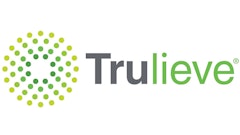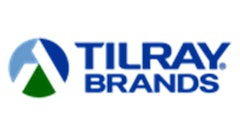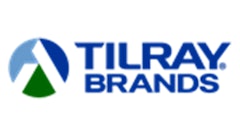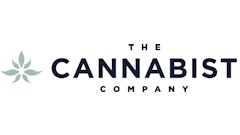
To sell product to retailers, cannabis cultivators and processors must first initiate and develop relationships with dispensaries, which can be a daunting task. Luckily, technology is available to help.
Customer-relationship management (CRM) software can help producers and processors manage retail relationships and the overall sales process, which can in turn help operators grow their businesses.
PipelineDeals, a CRM software provider serving companies across many verticals, launched a cannabis-specific CRM solution in Washington to help cultivators and processors in the state’s cannabis market manage and grow their business-to-business relationships. Here, CEO JP Werlin outlines the essential questions that businesses should ask both themselves and tech companies before purchasing and implementing a CRM solution in their operation.
1. Do you understand your sales process?
Before bringing in CRM software to streamline the sales process, a business should first have a baseline, fundamental understanding of its current sales process, Werlin says.
“If you choose software of any type [but] don’t know the process that the software is enabling, then … the software’s just going to be a mirror to your broken process,” he says.
If a leader in the company cannot outline the sales process with the sales team and clearly identify the stages for a deal to progress with a retailer, then the business is likely not ready to purchase software, Werlin says.
2. Will your sales staff adopt the software?
Before a business commits to purchasing CRM software, it should ensure that the sales staff will actually adopt the solution chosen, Werlin says.
“I look at our software a lot like a gym membership,” he says. “You buy a gym membership. That’s great. You’re paying the $100 a month to go to the gym. If you don’t use the gym, you’re not going to get in shape. And the same is true for sales software. Just because you buy the software, if you don’t have your people trained and your process defined, you’re not going to get value.”
Again, it’s a matter of understanding the company’s sales process and ensuring that the sales reps are on board with using software to aid the process.
“Make sure it’s something your reps will use to give the leaders of the company the visibility they need to make sure, A) they’re growing, and B) nothing’s falling through the cracks, and those two things are related.”
3. Is the CRM provider approachable?
Once a business understands its sales process and gets the sales staff on board with implementing CRM software, the next step is ensuring that the CRM provider is easy to work with, Werlin says.
“I think too many companies, especially in the technology sector, don’t want to talk to customers,” he says. “And if you don’t have that level of approachability or support behind the software to answer questions that inevitably come up, then your sales team is not going to be successful.”
4. Is it the right-sized solution for your business?
Next, a company should make sure the technology is affordable and the right solution for its business model, Werlin says. Businesses may not want to work with a huge software company that offers more tech than they really need, but they should also avoid startups that can’t offer proven technology.
“[Make] sure you have the right size at the right cost for your business and that it’s software that will grow with you as you grow,” he says.
5. Is it customizable?
While the cannabis industry can leverage the basic sales knowledge and processes from other industries, producers and processors should be able to tailor CRM software to their specific business model, Werlin says. One of the ways to do this is through customizable fields that allow businesses to track specific information about their retail prospects and customers.
“Examples of custom fields could be: What size is their retail outlet? What product did they order last time?” Werlin says. “You could track any number of things with a custom field.”
Some CRM platforms may also have the option to come pre-loaded with data that can help growers and processors find their target market. For example, PipelineDeals’ software can be loaded with Washington’s i502 Marijuana Sales Data, which would populate the platform with all the publicly available information on each of the state’s licensed retailers.
“Imagine you’re a producer/processor, either a brand-new one, or you’re just moving off a spreadsheet to manage your sales and getting something just a little bit more sophisticated,” Werlin says. “From the day you start, imagine a world where all your potential customers are there with all their contact info.”
6. Does it track everything in one place?
Not only can CRM software track retailers’ locations and contact information, but some platforms can also store details about which products they buy, what products they are interested in, which companies are competing for sales into the dispensary and more.
Cultivators and processors should also look for a CRM platform that keeps track of people, Werlin adds, including key decision makers in a dispensary and whether that decision maker has delegated purchasing authority to a buyer.
Housing all of this critical information in one system ensures that a producer or processor never loses sales leads, even if a sales rep leaves the company.
“If sales reps turn over or move from one producer/processor to another, or to a different business entirely, the producer/processor doesn’t lose those contacts if they’re in the CRM because then it’s all tracked, managed and organized in one central location,” Werlin says. “Then the sales rep isn’t walking with their book of business—with their retailer relationships—to the next competitor.”
7. Will it streamline communication?
All relationships are built on communication, Werlin says—even those in the business world.
“If you think about how relationships are built in business, it’s not too different from how relationships are built outside of business,” he says. “Being consistent, reliable and timely are super important for building relationships in businesses, so that’s a common challenge across the industry is to help keep those relationships alive and healthy.”
Growers and processors should ensure that email can be integrated into the CRM software solution they choose for their business, Werlin says. This allows users to keep track of all their communications with retailers in one place.
In addition, some CRM platforms allow businesses to upload documents, such as marketing collateral or price lists.
“If you’re a producer/processor, there’s no wondering, ‘What did we say last time to such and such retailer?’” Werlin says. “It’s all there inside of your system. You can also keep track of your calendar [and] keep track of things you need to do in order to close a sale or open a new retailer.”
Action items can also be assigned in some CRM platforms to outline the next steps in the sales process. In addition, some platforms also have templates that outline sales best practices that reps can follow, Werlin adds, so all the sales staff are following standard procedures. “It helps you scale your business in a repeatable way.”
Top Image: © NicoElNino | Adobe Stock

























